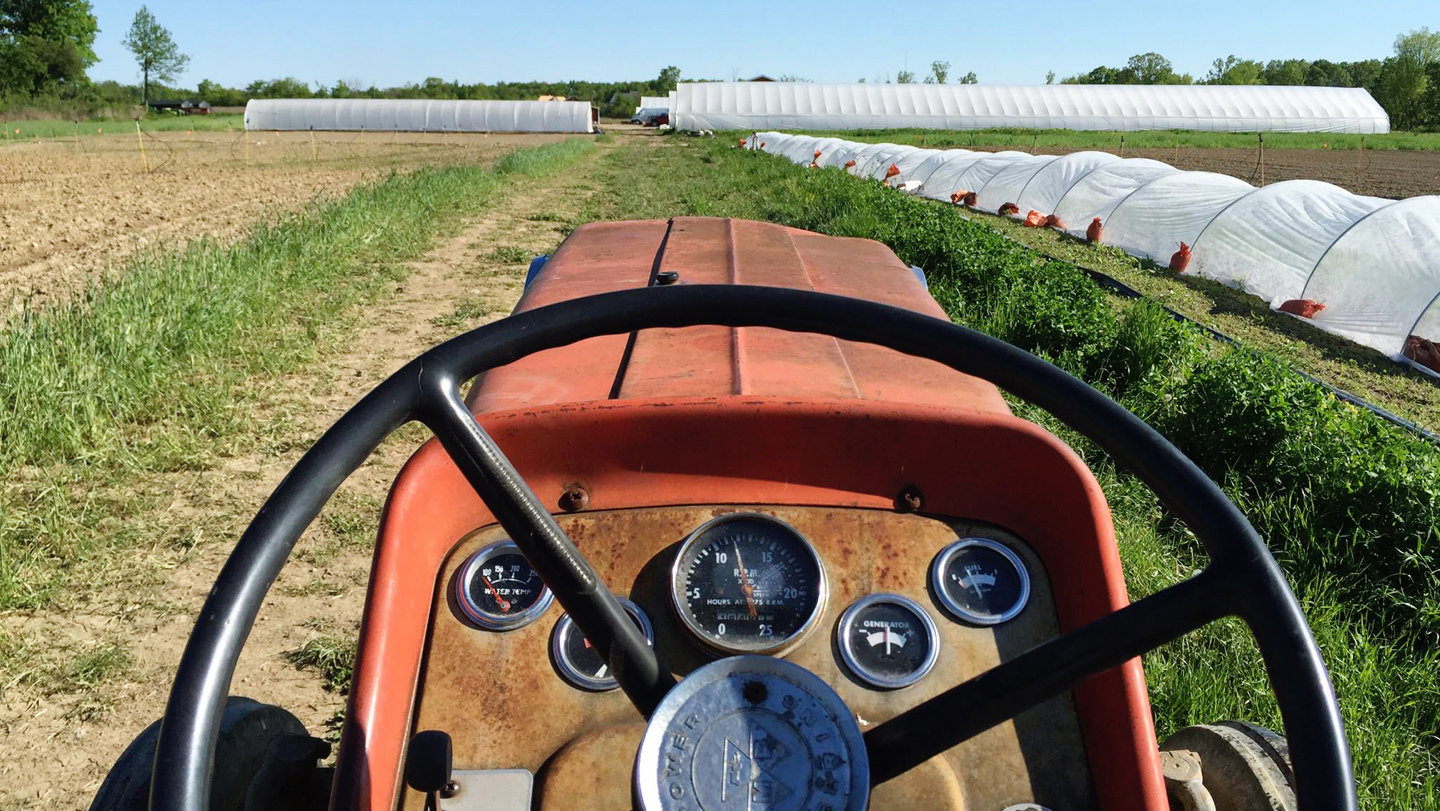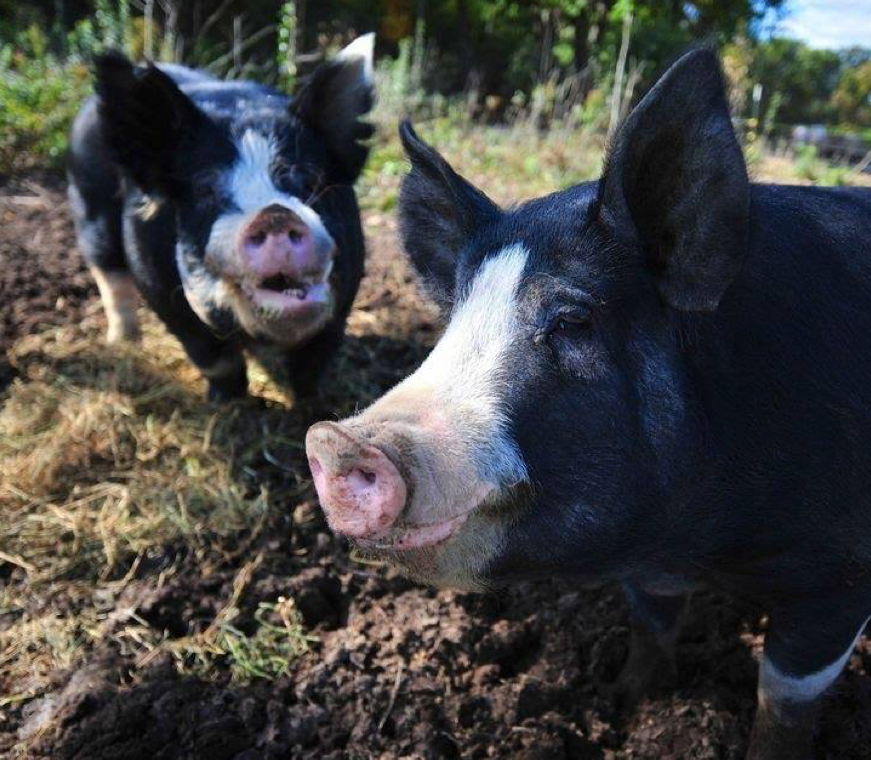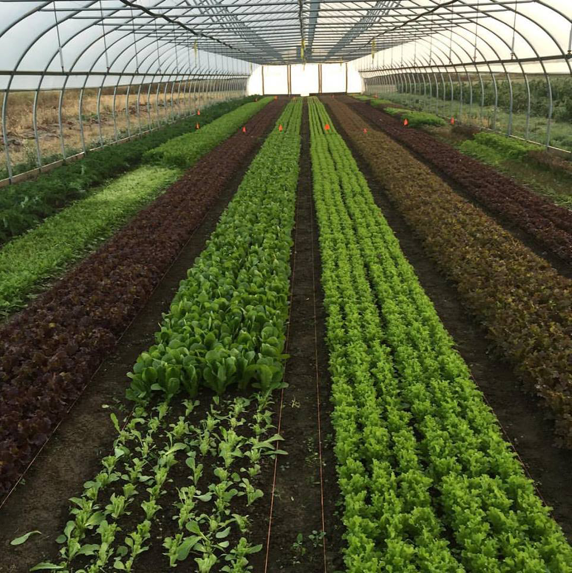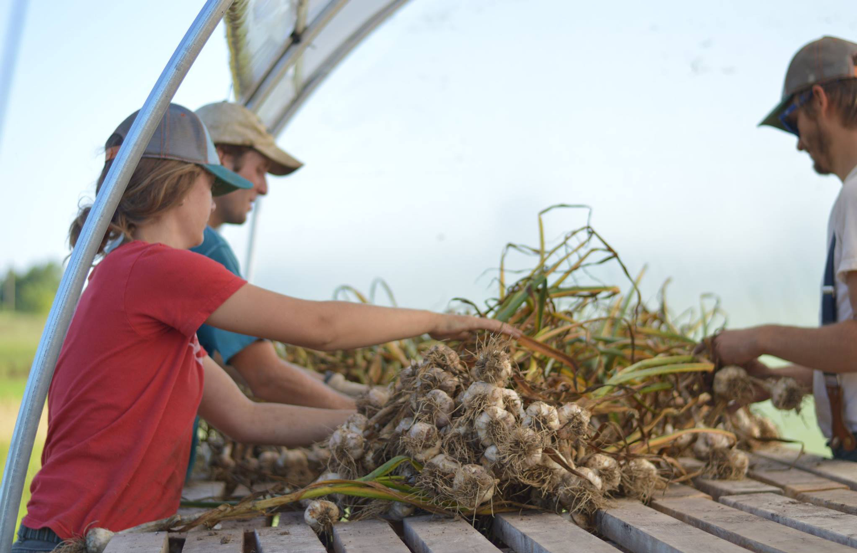
Green Things Farm
Finding Affordable Farmland
Green things Farm
Finding Affordable Farmland
Neither Jill nor Nate grew up on a farm. Yet the lure of farming as a livelihood and a lifestyle proved irresistible, inspired by growing up with horses, as in Jill’s case, and Nate’ summer helping his grandparents tend their vegetable farm in Wisconsin.
“I loved the outdoor lifestyle, the autonomy it provided and decided this would be a fine way to make a living,” says Nate.
Combined, the two only had that summer’s worth of farming experience and no family farm to take over. But that didn’t deter them from their dream of farming in the Ann Arbor area after Jill’s college graduation in 2011. For many young people like Jill and Nate, the dream remains just that as serious barriers exist for beginning farmers, not the least of which is having access to affordable land to farm close to a city.
Fortunately for Jill and Nate, their search brought them to Ann Arbor Township in Washtenaw County where they first found services to help them develop their business.
They learned about the Tilian Farm Development Center, a farm incubator situated on land leased from the Township.
Dedicated to beginning and underserved farmers, Tilian’s mission is to facilitate new farm-business development in order to increase diversified production for local markets year round in the greater Ann Arbor foodshed.
Farm Facts
PROPRIETORS
Nate and Jill Lada
AGE
29 and 26
YEARS FARMING
Four years
LOCATION
Ann Arbor Township
SALES
Approximately $200,000 and growing
FARMLAND PROTECTED
Conservation easement purchased with funding from Ann Arbor Township’s Farmland and Open Space Purchase of Development Rights Program, City of Ann Arbor’s Greenbelt Program, and the U.S.D.A. Farm and Ranch Lands Protection Program


Jill and Nate applied to and were accepted along with two other farm startups as part of Tilian’s very first cohort. That two-year experience gave them access to land, equipment, knowledge, networks, community resources, and business planning while giving them the chance to develop markets for their products. But they were always on the lookout for land to purchase as the time would come when they would need to transition to their own property.
 The Lada’s good fortune of accessing a farm incubator in Ann Arbor Township was neatly paired with the Township’s commitment to farmland preservation.
The Lada’s good fortune of accessing a farm incubator in Ann Arbor Township was neatly paired with the Township’s commitment to farmland preservation.
In 2003, Township voters passed a 20-year millage to generate funds to purchase development rights (PDR) to keep farmland in production. Since that time, the Township’s program has protected over 1,100 acres within their Agriculture Preservation District, more than half of their stated goal of 2,000 protected acres (see box). For Jill and Nate, the program made it possible for them pursue their dream of owning and working their own farm.
During their second year at Tilian, Jill and Nate learned that a farmland buyer was needed for 64 acres within the Township. The land was owned by investors who wanted to sell for its appraised development value of $8,500 per acre, a price well out of range of buyers like the Ladas. Ultimately, the owners agreed to sell the development rights, appraised at $5,500 per acre, to Ann Arbor Township. Funds for the purchase came from the Township’s PDR program, the City of Ann Arbor’s Greenbelt Program, and the federal Farmland and Ranch Lands Protection Program.
The Lada’s good fortune of accessing a farm incubator in Ann Arbor Township was neatly paired with the Township’s commitment to farmland preservation.


The result: Jill and Nate were able to buy the land as farmland, not for its development potential, at a much more affordable price of $3,000 an acre.
With the development rights essentially extinguished, a conservation easement is in place that permanently dedicates the land to farming with allowance for only needed farm infrastructure and the possibility of a homestead on
the property.
Green Things Farm is now thriving with vegetables, flowers, hay and some grains in production with hogs and chicken raised as well.
The Ladas serve weekly farm dinners for 75 people a week in season. They go to two different farm markets in Ann Arbor and Ypsilanti and sell produce at the Argus Farm Stop, a year-round market in downtown Ann Arbor. They also sell to half a dozen restaurants and to a local grocery store chain. Besides Jill and Nate, a full time, year-round assistant production manager is employed with a seasonal staff of 4 full time over the summer and an additional 1 ½ staff to help out at the tail end of the season.
No doubt there have been challenges, not the least of which is the lack of farm infrastructure on what was essentially vacant land. But when asked what are the public benefits of PDR programs like Ann Arbor Township’s, Nate takes a community-wide perspective.
“Farmland certainly adds to the rural character of the region and is a balance to relentless sprawl. It means agriculture can exist closer to city centers and provide fresh, local foods at more affordable prices.”
Green Things Farm is now thriving with vegetables, flowers, hay and some grains in production with hogs and chicken raised as well.
